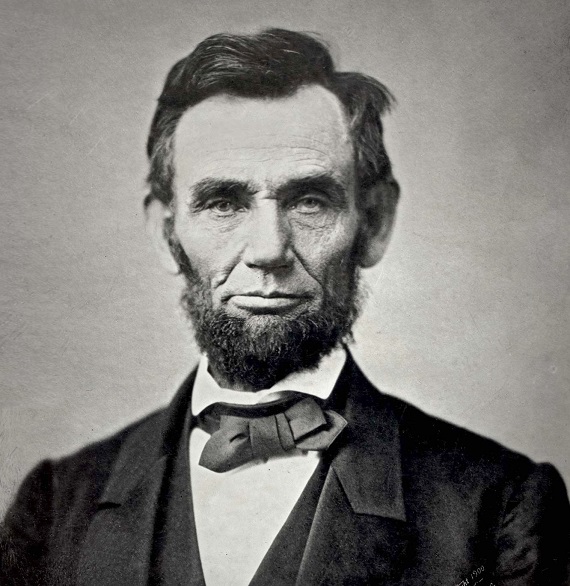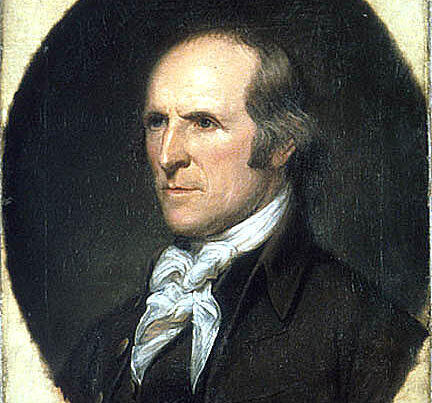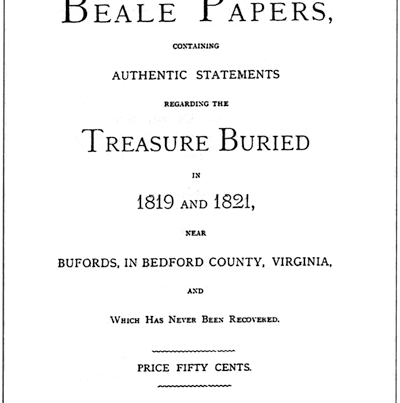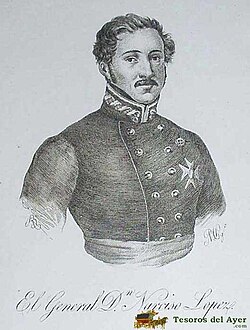
Tomorrow is Abraham Lincoln’s birthday. Familiar Lincoln idolaters will gather to celebrate the birth, on Feb. 12, 1809, of the 16th President of the United States, and finesse his role in “the butchering business”—to use Prof. J. R. Pole’s turn-of-phrase. Court historian Doris Kearns Goodwin is sure to make a media appearance to extol the virtues of the president who shed the blood of brothers in great quantities, and urged into existence the “American System” of taxpayer-sponsored grants of government privilege to politically connected corporations.On publication, in 2002, of the book “The Real Lincoln: A New Look at Abraham Lincoln, His Agenda, and an Unnecessary War,” the “Church of Lincoln” gave battle. The enemy was the author, Thomas J. DiLorenzo, who had exposed Lincoln lore for the lie it was — still is. DiLorenzo had dared to examine the “Great Centralizer’s” role in sundering the soul of the American federal system: the sovereignty of the states and the citizenry.
Steeped as they were in the Lockean tradition of natural rights and individual liberty, the constitutional framers held that the inalienable rights to life, liberty, and property were best preserved within a federal system of divided sovereignty, in which the central government was weak and most powers devolved to the states, or to the people, respectively, as stated in the 10th Amendment. If a state grew tyrannical, competition from other states — and the individual’s ability to switch allegiances by exiting the political arrangement — would create something of an agora in government. This was the framers’ genius.
The concentrated powers Lincoln sought were inimical to the founders’ loose constitutional dispensation. To realize his expansionist ideals, Lincoln would have to crush any notion of the Union as a voluntary pact between sovereign states and individuals. By Lincoln’s admission, he prosecuted the war between the Union States of the North and the Southern Confederate States in order to maintain the Union; he vowed to so do “by freeing all the slaves or without freeing any slave,” as Mark Bostridge conceded uncontroversially in the Times Literary Supplement (December 10, 2010). Duly, Lincoln’s “Emancipation Proclamation” guaranteed that slaves were freed only in regions of the Confederacy still inaccessible to the Union army. Union soldiers, for their part, were permitted to seize slaves in rebel territory and put them to work. In areas loyal to the North, slaves were not emancipated. After the war, Lincoln offered little land to the freed men; parceling off the spoils to his constituent power-base: the railroad and mining companies.
The North was no more fighting to abolish slavery than the South was fighting to preserve it: A mere 15 percent, or thereabouts, of Southerners owned slaves.
The “pseudo-intellectuals who [are] devoted to pulling the wool over the public’s eyes” have a lot to answer for. Lincoln’s violent, unconstitutional revolution took the lives of 620,000 individuals (including 50,000 Southern civilians, blacks included), maimed thousands, and brought about “the near destruction of 40 percent of the nation’s economy.” “The costs of an action cannot be dismissed as irrelevant to morality,” wrote the Mises Institute’s David Gordon in “Secession, State & Liberty.” Almost every other country at the time chose the path of peaceful emancipation. Yet today’s Americans look upon the terrible forces Lincoln unleashed as glorious events, the native appetite having habituated to carnage over time.
Lincoln lovers like to claim that the Constitution ratified in 1788 forbade peaceful secession, and authorized a federal government of so-called limited, delegated powers to invade and occupy any seceding state; declare martial law, subdue secessionists by force, burn and ransack entire cities, and then establish a military dictatorship over those states lasting a dozen years.
Suppose this indeed is the case, and that it was perfectly constitutional to intentionally wage war on civilians, to imprison without trial thousands of Northern citizens, jail—even execute—people who refused to take an oath of loyalty to Lord Lincoln, declare martial law, confiscate private property, censor telegraph lines, and shut down newspapers for opposing the war, incarcerating their editors and owners. Say, for the sake of argument, that it was indeed lawful to suspend the Bill of Rights, the writ of habeas corpus, and the international law.
If it endorsed, or even accommodated, what Lincoln did, including his disregard for the Ninth and 10th amendments, and his violation of the Second — then the Constitution is categorically evil and self-contradictory.
The more plausible explanation is that, in 1861, Lincoln kidnapped and killed the Constitution. The Jacobins who lionize Lincoln’s actions (by referring to his billowing prose) have been covering up his crimes and ignoring the consequences of his coup ever since.






The Civil War wasn’t a civil war. Lincoln and the North fought and won the second American Revolution for the Crown bankers who replaced the lawful American government with a private corporate Federal government and enslaved everyone.
Each of us needs to preach these facts every time we have the chance to reach a naive Lincoln bootlicker. I hammer this on my Facebook page every time it pops up! Long live Dilorenzo!
Fascinating article by Ilana Mercer. For an Englishman who has ‘read up’ the American Civil war military history, this article takes the interpretation of the 61-65 war to completely new area of consideration.
A REally thought provoking work.
Read Thomas DiLorenzo’s books on Lincoln to get the full, accurate and objective story on ‘The Great Centralizer’. They are easy to read, meticulously sourced and he write columns for Lew Rockwell many of which reference other historians who write about the ‘Civil War’.
Intentions make little or no diffference. What counts, are results. Suppose that Lincoln freed the slaves with the intention of pleasing the space aliens. That would have made no difference, practically or morally.
The northen intervention ended chattel slavery after the war.
The civil war would not have been necessary, if abolitionists had sided with Britain after the Mansfield Decision in 1772, outlawing slavery in Britain. In 1833 this was extended to all British-controlled territory, and the British navy prohibited trade in slaves. So, the American Revolution can be seen as a continuation of the century-earlier British civil war, a way to continue slavery, and a prelude to the US civil war.
Great article! I was getting nauseated with all the Lincoln dinner posts I’ve seen all week. The worshippers never take these things into consideration. Thank you!
Great thought-provoking article, as usual, from Ilana Mercer.
Of course, a thesis such as this will never be taught in US History classes, unfortunately, because too many of the wrong people believe in the adage that the end justifies the means.
Accordingly, in Lincoln’s mind, the end (saving “the Union”) justified the means (by destroying it).
Twisted thinking by a great American megalomaniac. Thanks Abe!